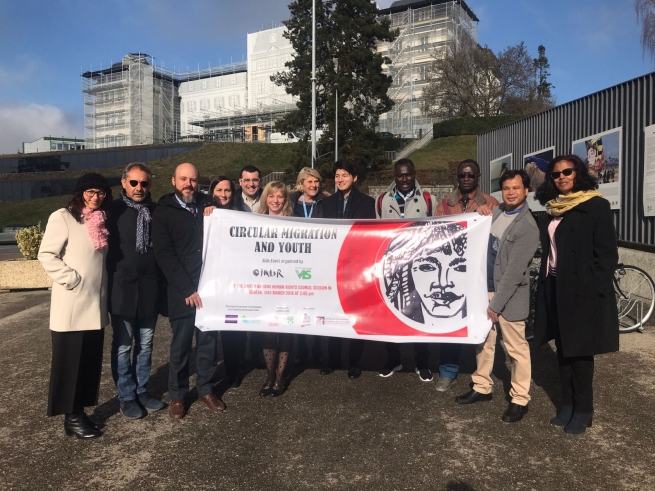Among the speakers: Michela Vallarino, Vice-President of VIS, Agostino Sella, President of Don Bosco 2000, Fr Francois Coly, Director of the Salesian house in Tambacounda, Senegal, together with the testimony of Seny Diallo, coordinator of the Don Bosco Center in Tambacounda.
Barbara Terenzi (VIS Coordinator Human Rights & Advocacy Office), who curated the event, acts as moderator and facilitator for the presentations by the representatives of various territorial Salesian realities: Leslie Tavares, from the Dominican Republic, Meaza Tesfagiorgis, from Ethiopia, Walter Thyrniang, from Zambia, and Gianpaolo Gullotta of VIS in Ghana.
The event serves both to complete the technical and institutional empowerment of the multi-country project partners and to highlight the positive experience already achieved by Don Bosco 2000 in Senegal with a pilot circular migration project.
"Circular migration" is today considered one of the most advanced approaches to tackling the issue of migration, especially with regard to young people, the subjects most at risk of irregular migration.
For this reason, today in Geneva the good practices already implemented in Sicily by different Salesian realities is presented, including an exchange between the reception and formation activities for young migrants and the possibility of their returning to the country of origin enriched by targeted training in sectors such as agriculture, crafts and tourism, so as to start targeted interventions at home and contribute to the sustainable development in and of their own communities. In fact, in Tambacounda today work is being done towards the creation of a vegetable garden of about 1 hectare with organic products, drip irrigation and solar panels.
The young people trained in Sicily who have returned to their village, in their turn, train their comrades with the aim of getting to replicate this type of business in the neighboring villages and reach consolidated production throughout the year where once the land was cultivated for only a few months during the year.
The result, an experience that tends to transform the young migrant into a cooperator who not only informs others about the dangers of irregular migration, but operates in his or her country of origin and contributes to its development.


